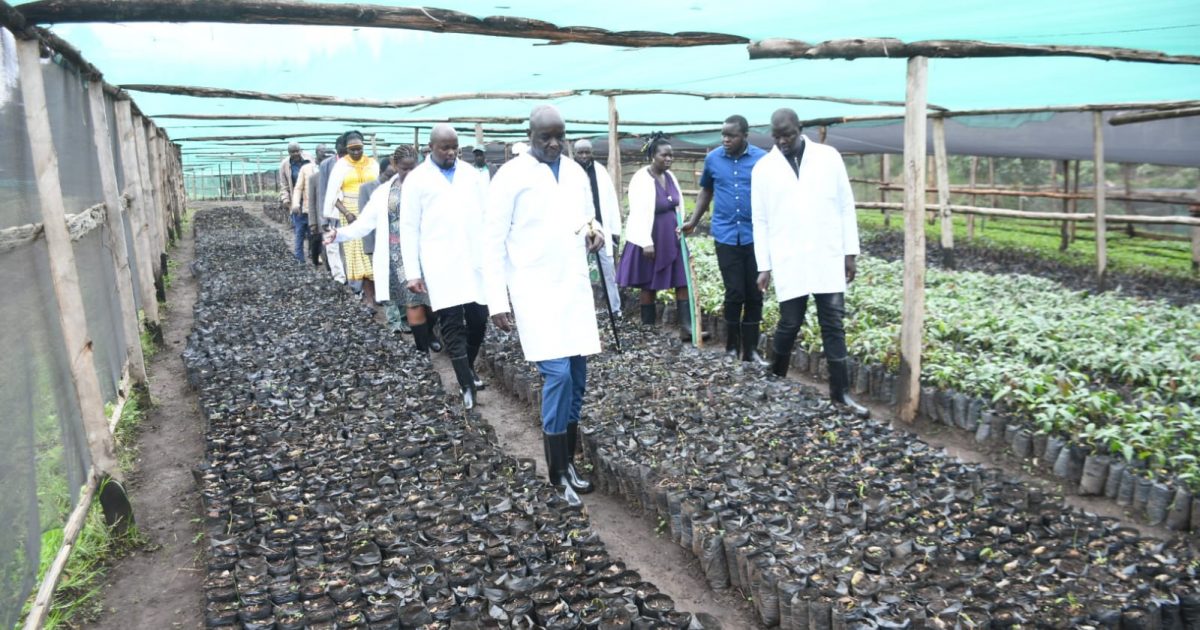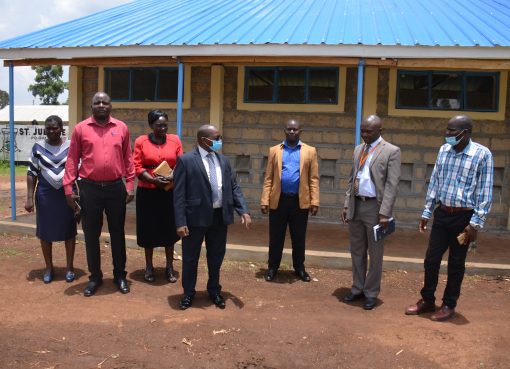West Pokot Governor Simon Kachapin has launched free distribution of fruit seedlings to farmers, coinciding with the onset of the rainy season.
Speaking during the official unveiling of the large scale fruit tree seedlings distribution program at the Aramaket County fruit tree nursery, Kachapin said the initiative is being executed by the West Pokot County government in collaboration with the national government and other partners.
The initiative falls under the Emergency Locust Response Project (ELRP), which began in 2021 and is set to conclude in June this year.
“The project aims to mitigate the effects of climate challenges,’’ he said.
The governor reported that through the project, the county plans to distribute 106,500 avocado seedlings (covering 2,130 acres), 201,300 mango seedlings (4,026 acres), 231,189 coffee seedlings (231 acres), 1000 citrus seedlings and 33,000 pyrethrum splits across the county, free of charge.
The governor stated that the county will use media to raise awareness among farmers about the fruit tree nursery, and encourage them to embrace fruit farming in their homesteads.
He noted that the impact of climate change is palpable both globally and in West Pokot, where erratic weather patterns including heavy rainfall followed by drought, have been increasingly common.
Highlighting the significance of perennial crops like mangoes and avocados, Kachapin explained that when well-nurtured, the trees enhance food security.
The governor also addressed the urgent need for environmental conservation in the face of significant degradation caused by human activities.
He indicated that the tree nursery project has exposed farmers to various tree species, including coffee and pyrethrum that they may not have encountered before.
“We will use this project to provide hands-on experiences that farmers can replicate,’’ he remarked.
Kachapin noted that the seedlings have been prepared in different growth stages, ensuring that farmers receive plants ready for cultivation, thereby promoting sustainability.
He said that although the Emergency Locust Response Project will conclude this year, a new food system project is set to be launched in the county, anticipating further enhanced food security and improved livelihoods.
The governor highlighted the collaborative nature of the tree planting initiative, which involves various partners including the prisons department and the county commissioner’s office.
He emphasized that success in the project requires teamwork and the involvement of multiple stakeholders.
Additionally, Kachapin mentioned that any farmer who has fenced their farm, dug planting holes and expressed a commitment to care for the seedlings until maturity, will receive them at no cost.
He also pointed out that the initiative aims to combat malnutrition, which he said is a significant issue in West Pokot.
“By encouraging farmers to plant fruit trees, the project seeks to improve nutrition levels in families,” he said.
At the same time, Kachapin disclosed that the county government has developed the Nasukuta project, where thousands of hay has been planted, and is being sold to farmers at subsidized prices.
He also urged farmers to adopt modern farming techniques such as planting grass for hay, to better manage their livestock and maximize their yields.
Catherine Kinyanjui, representing the regional coordinator and overseeing agribusiness projects within ELRP, praised Kachapin for showing leadership in launching the fruit and seedling project.
She noted that the project addresses the needs of the West Pokot community and aligns with partner goals focused on sustainability, environmental conservation, climate change mitigation and improving food security.
Kinyanjui also commended the county’s animal vaccination initiatives and encouraged the governor to maintain strong coordination with the national government administrative officials for future projects yet to be realized, emphasizing that the efforts would facilitate income-generation opportunities for farmers.
By Anthony Melly and Ivor Parklea




